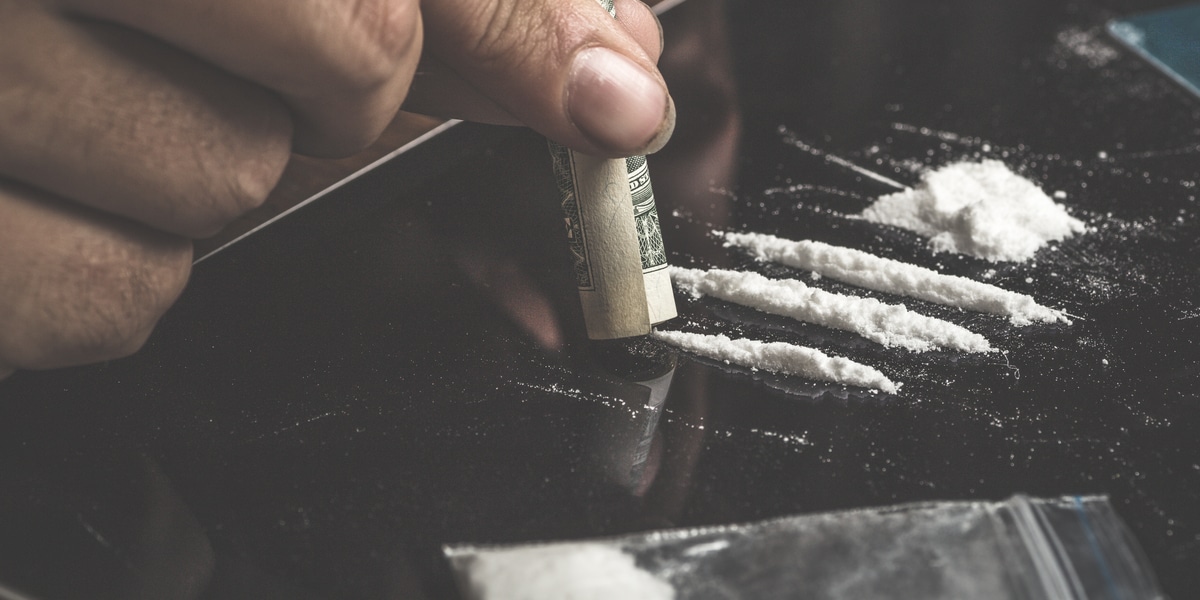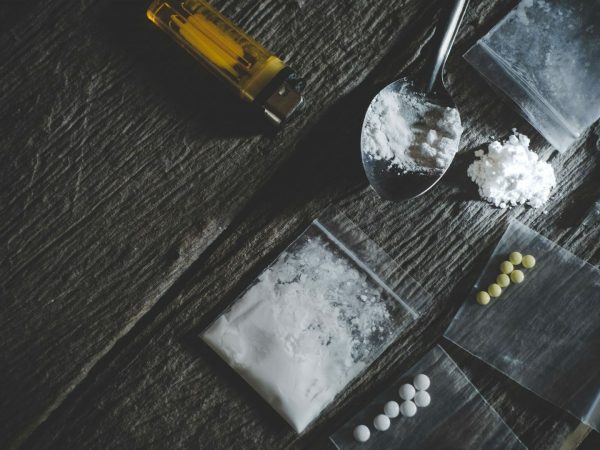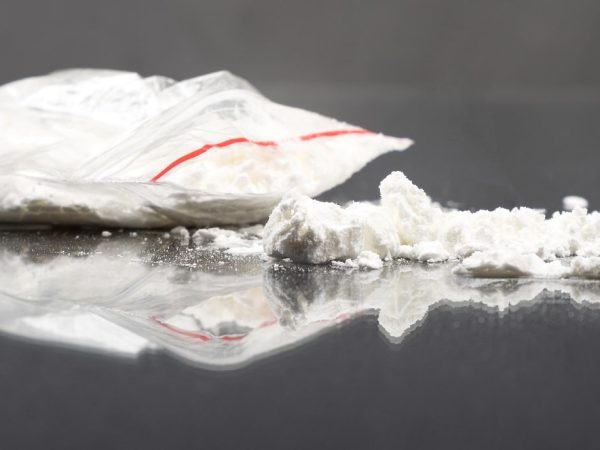Recognizing the signs of cocaine addiction in your loved one can be scary, but it is an important first step in getting the addicted person help. While cocaine can cause a destructive and all-consuming addiction, recovery is possible no matter the extent of the addiction.
The Beekeeper has written this guide to help you assess whether the person you care about has a cocaine addiction. For more information on how we help people who are addicted to cocaine, contact The Beekeeper on +66 90 893 5296.
What is Cocaine?
Cocaine is a highly addictive stimulant drug that boosts alertness and energy in users. It is made from the leaves of the coca plant, which is native to South America. Cocaine is a white powder that can be inhaled or snorted through the nose, rubbed on the gums, swallowed, or dissolved in water and injected directly into a vein.
Cocaine is an illegal street drug that is also known as ‘blow,’ ‘coke,’ ‘crack’, ‘snow’, or ‘nose candy’. There are two main forms of cocaine: the powdered form (snorted or dissolved and injected) and crack cocaine (usually smoked). The duration and intensity of pleasure produced by cocaine are determined by how it is used.
Cocaine is more rapidly absorbed into the blood circulation when smoked or injected, resulting in an instant ‘high’ (which lasts for 5-10 minutes), but snorting causes relatively slower absorption of cocaine, prolonging the feelings of pleasure (which lasts about 15-30 minutes).1
How Does Cocaine Work?
Dopamine (a chemical in the brain) is associated with pleasure and satisfaction. The release of dopamine in the brain causes euphoria (a feeling of pleasure). Cocaine blocks the dopamine transporters in the brain, prolonging the availability of dopamine and therefore causing euphoria (dopamine transporters reduce the levels of dopamine in the brain).2
Why People Use Cocaine
People use cocaine to feel a euphoric high. Users react differently to cocaine. Some users report feeling more energized, sociable, and confident, while others report feeling anxious and tense. The desired high phase is followed by a ‘crash’ where people feel depressed and sometimes suicidal.
Spread of Cocaine Abuse in the U.S.
Recreational cocaine usage is more common among the young population. In the year 2020, 489,000 people aged 12 and above used cocaine; the proportion was highest among young adults aged 18 to 25 years (1.4 million people).3 Furthermore, the number of cocaine-related overdose deaths has increased from 5,419 in 2014 to 19,447 in 2020.4 These numbers show the impact of cocaine addiction on the U.S. population.
Given the devastating consequences of cocaine addiction, it is important that loved ones be protected from drug exposure. The first step in this process is to recognize the signs of cocaine addiction.
Signs of Cocaine Addiction
The signs of cocaine addiction vary among users. The symptoms and their intensity are determined by the duration and frequency of cocaine use, the amount of drug used, the method of administration, and the purity of the cocaine used.
Physical and mental signs of cocaine addiction can be recognized by loved ones or friends. Drug use is sometimes indicated by the presence of drug paraphernalia, which includes everything used in the production, processing, preparation, or administration of illegal drugs.
The following psychological signs of cocaine use may be used to recognize drug abuse:
- Paranoia
- Irritability
- Anxiety
- Depression
- Impaired decision-making
- Poor memory
Physical effects of cocaine addiction include:
- A whitish powdery film at the bridge of the nose (‘sugar spots’)
- Headaches
- Dilated pupils
- Bloodshot eyes (red eyes)
- Nausea
- Rapid heart rate
- Seizure
- Stroke
- Stomach pain
- Chest pain
- Heart attack
The Dangers of Cocaine Abuse
Cocaine abuse has short-term as well as long-term effects on users.
1) Short-term Effects of Cocaine Abuse
Cocaine is a short-acting drug. Its use causes the narrowing of blood vessels, leading to increased blood pressure, rapid increases in core body temperature, and a faster heart rate.
Due to the short-lasting effect, people may use large amounts of cocaine to intensify the euphoria, but it can also cause side effects like violent behaviour, restlessness, paranoia, anxiety, and panic. Users may also experience tremors (uncontrolled shaking) and muscle twitches.5
Cocaine abuse also affects the heart, causing arrhythmia (irregular heartbeats) and heart attacks; the brain (seizures, strokes, coma, and headaches); and the gut (nausea and stomach pain).6
Many cocaine users also use alcohol and other drugs, which is a risky combination that can lead to death.
2) Long-term Effects of Cocaine Abuse
Frequent cocaine use leads to tolerance (the body’s reduced response to a drug). Tolerance increases the amount of cocaine required to get the euphoric effect.7 Furthermore, the brain mechanisms involved in stress become more sensitive, resulting in the onset of cocaine withdrawal symptoms. This combined effect leads to an increase in cocaine consumption.
Long-term and frequent cocaine use can damage vital body organs. For example, it reduces blood flow to the gut, leading to tears and ulcerations. Many cocaine addicts experience a loss of hunger and weight loss.
What Causes Cocaine Addiction?
Multiple factors are responsible for developing an addiction to cocaine in users.
A) Genetics
Genetics is an important risk factor for drug addiction. People with drug-addicted siblings or relatives are 4.4 times more likely to develop a cocaine addiction.8
B) Physical
Some people with unique physical conditions like ‘dopamine deficiency syndrome’ have low dopamine levels in the brain. Overall, there is insufficient dopamine activity in the pleasure and reward areas of the brain. This deficiency encourages people to participate in activities that boost brain dopamine function, such as cocaine use.9
C) Environmental
People who grow up in a home where their parents or siblings take drugs may see drugs like cocaine as a typical way to cope with life’s stresses. Furthermore, the environment in schools, communities, and workplaces may influence people’s choice to use cocaine.
Risk factors that may increase a person’s likelihood of becoming a drug addict are:
- Peer influence
- Easy access to drugs
- Stress
- Being lonely
- Inadequate parental oversight
Presence of mental health conditions like depression and dopamine deficiency syndrome
How to overcome cocaine abuse
Addiction to cocaine is not a simple process; it involves changes in the brain as well as influences from someone’s social and family life. As a result, cocaine addiction treatment must address this broad context as well as any co-occurring mental issues that demand further behavioural or medicinal treatments.
Drug Therapy for Cocaine Addiction
The U.S. Food and Drug Administration (FDA) has not authorized any drugs to treat cocaine addiction, although scientists are looking at several potential neurological targets. While much of the prior research has emphasized dopamine, recent studies have shown that cocaine use also causes changes in the brain that are associated with other chemicals. Those new chemicals are being explored by scientists to come up with a potential treatment strategy for cocaine addiction.
An experimental vaccine against cocaine use has been created and tested in humans. The vaccine works by triggering the body to produce antibodies that attach to cocaine and block its entry into the brain.10 A clinical trial demonstrated the vaccine’s safety and showed that people who achieved high antibody levels massively reduced their cocaine use.11
Behavioural Therapies
In many cases, behavioural therapies are the only effective option for addressing drug abuse, including cocaine addiction. However, it is likely that the most successful method will be one that combines behavioural therapy with drug therapy.
Contingency Management (CM)
CM, also known as motivational incentives, is a method of behavioural treatment that has shown promising outcomes in treating individuals with cocaine addiction. Patients who participate in these programs and avoid using cocaine and other drugs are rewarded with prizes.12
Behavioural Therapy (CBT)
CBT and other therapies help people learn the skills they will need to remain sober for the long term, such as how to identify and avoid situations where they will be tempted to use cocaine and how to deal with the stresses that come with quitting. This approach can also be used with other therapies to maximize their effectiveness.
Community-based rehabilitation organizations that employ a 12-step structure, such as Cocaine Anonymous, can also help people stay cocaine-free.
The Road to Cocaine Addiction Recovery
Quitting drug use is only the first step in a long and difficult rehabilitation journey. By the time people start with treatment for drug use, addiction has usually already caused a great deal of damage in their lives. The signs of cocaine addiction have become apparent, and this harm might appear as poor health, an economic burden, or how they function in their family life, workplaces, and society.
On the road to addiction recovery, a slip, or even a full-fledged relapse (resuming the drug abuse after an attempt to stop), is not unusual. Relapse rates for those in recovery from cocaine addiction range between 40-60%, according to the National Institute on Drug Abuse (NIDA).13
Relapse is not a failure. It can help to improve coping abilities and the desire to find long-term recovery. Loved ones and friends play an important role in relapse. Those in recovery need to hear that they are not alone and that they are not likely to be the last to experience a relapse.
Completing the recovery program is a significant accomplishment that should be celebrated. However, this is only the first step in a lifelong journey without cocaine. Patients who complete a recovery program may need to re-adjust to their new lifestyles and make new friends. People recovering from cocaine addiction can take control of their future by living a sober life with the support of family and friends.
The Beekeeper – Rehab for Cocaine Addiction
At The Beekeeper rehab for cocaine addiction, we believe the most effective way of treating addiction to cocaine is with an individualized holistic program. While talk therapy is often the most effective way of treating addictions, we find the healing momentum created by also incorporating alternative healing modalities significantly accelerates the healing process.
If you would like more information on our approach to healing cocaine addiction, please do not hesitate to contact us on +66 90 893 5296.
References
- Irwin KL, Edlin BR, Faruque S, McCoy HV, Word C, Serrano Y, Inciardi J, Bowser B, Holmberg SD. Crack cocaine smokers who turn to drug injection: characteristics, factors associated with injection, and implications for HIV transmission. The Multicenter Crack Cocaine and HIV Infection Study Team. Drug Alcohol Depend. 1996;42(2):85-92.
- Dackis CA, O’Brien CP. J Subst Abuse Treat. Cocaine dependence: a disease of the brain’s reward centers. 200;21(3):111-7.
- National Survey on Drug Use and Health (U.S.), & United States. (2020). The NSDUH report. Rockville, Md.: U.S. Dept. of Health & Human Services, Substance Abuse & Mental Health Services Administration, Office of Applied Studies.
- National Institute on Drug Abuse. National Overdose Deaths Involving Heroin, by Other Opioid Involvement—Number Among All Ages, 1999–2020. National Institute on Drug Abuse (NIDA);2020. Available from: https://nida.nih.gov/research-topics/trends-statistics/overdose-death-rates.
- Goldstein RA, DesLauriers C, Burda AM. Cocaine: history, social implications, and toxicity–a review. Dis–Mon DM. 2009;55(1):6-38.
- Riezzo I, Fiore C, De Carlo D, et al. Side effects of cocaine abuse: multiorgan toxicity and pathological consequences. Curr Med Chem. 2012;19(33):5624-5646.
- Wolf ME. The Bermuda Triangle of cocaine-induced neuroadaptations. Trends Neurosci. 2010;33(9):391-398.
- Merikangas KR, Stolar M, Stevens DE, Goulet J, Preisig MA, Fenton B, et al. Familial transmission of substance use disorders. Arch Gen Psychiatry. 1998;55:973–9.
- Attention-deficit-hyperactivity disorder and reward deficiency syndrome. Blum K, Chen AL, Braverman ER, Comings DE, Chen TJ, Arcuri V, Blum SH, Downs BW, Waite RL, Notaro A, Lubar J, Williams L, Prihoda TJ, Palomo T, Oscar-Berman M. Neuropsychiatr Dis Treat. 2008 Oct;4(5):893-918.
- Kosten TR, Domingo CB. Can you vaccinate against substance abuse? Expert Opin Biol Ther. 2013;13(8):1093-1097.
- Martell BA, Orson FM, Poling J, et al. Cocaine vaccine for the treatment of cocaine dependence in methadone-maintained patients: a randomized, double-blind, placebo-controlled efficacy trial. Arch Gen Psychiatry. 2009;66(10):1116-1123.
- Schierenberg A, van Amsterdam J, van den Brink W, Goudriaan AE. Efficacy of contingency management for cocaine dependence treatment: a review of the evidence. Curr Drug Abuse Rev. 2012;5(4):320-331.
- Drug dependence, a chronic medical illness: implications for treatment, insurance, and outcomes evaluation. McLellan AT, Lewis DC, O’Brien CP, Kleber HD. JAMA. 2000 Oct 4;284(13):1689-95.






